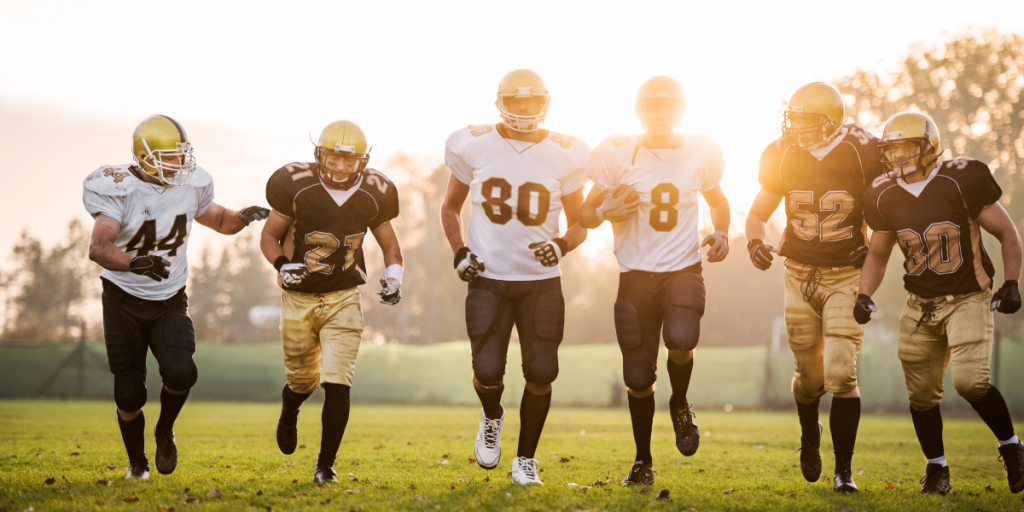Name, Image, Likeness (“NIL”) or Right of Publicity
The NIL Policy Template is intended to help colleges and universities create a policy regarding student-athletes use of their name, image, or likeness (NIL). The template is not intended to be a one-size-fits-all solution; rather, it is designed to provide colleges and universities with a starting point for crafting their own policies.
When it comes to your name, image, and likeness (“NIL”), which establishes the right of publicity, as an athlete there are a number of things you need to consider.
- First and foremost, you need to be aware of what these rights are and how they can be exploited.
- Secondly, you need to be cautious about who you allow using your NIL, as there are a number of ways in which it can be misused.
- Finally, you need to be aware of the potential legal implications of allowing someone to use your NIL without your permission.

Table of Content
- Personal Branding
- What is Right of Publicity?
- Who is affected by the Right of Publicity?
- The implications of the Right of Publicity
- Risks associated with allowing someone to use your Name, Image, Likeness (“NIL”)
- Consulting with an Entertainment Attorney
Let’s Start by Discussing Personal Branding.
As an athlete, you have a unique opportunity to build a personal brand. Personal brands are built by leveraging your name, image, and likeness to create a positive reputation and increase your visibility. When done correctly, personal branding can lead to increased opportunities, both in and out of sports.
Your name, image, and likeness are key components of your personal brand, and you need to be careful about who you allow to use them. If you’re not careful, you could end up damaging your personal brand or even opening yourself up to legal action.
Now let’s talk about the legal implications of NIL.
What Is the Right of Publicity?
The right of publicity is the right of an individual to control the commercial use of their name, image, and likeness. This right is often exploited by businesses who wish to use an individual’s name or image to sell products or services. In some cases, the right of publicity can also be used to prevent an individual from using their own name or image in a way that could be deemed to be harmful to their reputation.
The right of publicity is not to be confused with the right of privacy, which is the right of an individual to keep their personal information private. The two rights are often confused because they both relate to the control of an individual’s name and image. However, the right of publicity is focused on the commercial use of an individual’s name and image, while the right of privacy is focused on the protection of an individual’s personal information.
Who Is Affected by the Right of Publicity?
The right of publicity is a right that is held by every individual. This means that every athlete, regardless of their fame or notoriety, has the right to control the commercial use of their name, image, and likeness.
However, the level of protection that is afforded to an individual’s NIL varies from jurisdiction to jurisdiction. In some jurisdictions, the right of publicity is considered to be a property right, while in others it is considered to be a personal right. This means that the level of protection that is afforded to an individual’s NIL can vary depending on where they live.
Personal Rights vs. Property Rights
Personal rights are rights that are held by an individual and can be waived or transferred by that individual. This means that an individual can choose to allow someone to use their NIL without their permission. However, they can also change their mind at any time and revoke that permission.
Property rights are rights that are held by an individual but cannot be waived or transferred by that individual. This means that an individual cannot choose to allow someone to use their NIL without their permission. If someone uses an individual’s NIL without their permission, they may be guilty of infringing on that individual’s property rights.
What Are the Implications of the Right of Publicity?
The right of publicity can have a number of implications for athletes.
First and foremost, it can be used to prevent businesses from using an athlete’s name or image without their permission. This means that businesses will need to obtain the athlete’s permission before they can use their name or image for commercial purposes. These permissions can often be obtained through a licensing agreement.
Secondly, the right of publicity can be used to prevent others from using an athlete’s name or image in a way that could be harmful to their reputation. This means that athletes need to be careful about who they allow using their name or image. If they’re not careful, they could end up damaging their personal brand or even opening themselves up to legal action.
Finally, the right of publicity can have legal implications for athletes. In some jurisdictions, the unauthorized use of an individual’s NIL can give rise to a claim for defamation. This means that if an athlete allows their NIL to be used without their permission, they could be sued for defamation.
What Are the Risks of Allowing Someone to Use Your NIL?
A personal brand holds value. Your NIL rights are a part of your personal brand. When another party uses your NIL without your permission, they are effectively taking value away from you.
There are also reputational risks associated with allowing someone to use your NIL without your permission. If the person or company who is using your NIL engages in activities that are illegal or unethical, your reputation could be harmed by association.
Finally, there are legal risks associated with allowing someone to use your NIL without your permission. If the person or company who is using your NIL engages in activities that are illegal or defamatory, you could be sued for defamation.
What Are the Risks of Allowing Someone to Use Your Nil?
A personal brand holds value. Your NIL rights are a part of your personal brand. When another party uses your NIL without your permission, they are effectively taking value away from you.
There are also reputational risks associated with allowing someone to use your NIL without your permission. If the person or company who is using your NIL engages in activities that are illegal or unethical, your reputation could be harmed by association.
Finally, there are legal risks associated with allowing someone to use your NIL without your permission. If the person or company who is using your NIL engages in activities that are illegal or defamatory, you could be sued for defamation.
Consult With an Entertainment Lawyer to Understand Your Rights
If you are an athlete or someone who is considering licensing their NIL, it’s important to understand your rights. The law surrounding the right of publicity is constantly evolving. This means that it can be difficult to keep up with the latest changes. An experienced entertainment lawyer can help you navigate the complex legal landscape and ensure that you are protected.Need an Entertainment Attorney? Learn more about our sports & entertainment law practice or schedule an initial consultation here.

Aaron Rice, Esq.
Sports & Entertainment Attorney
Chair of Sports & Entertainment Law Division
contact@founderslegal.com
Aaron Rice is the Chair of Founders Legal’s Entertainment Group and managing attorney of the firm’s Nashville location. Aaron’s experience extends beyond legal expertise, providing his clients with a deep understanding of the entertainment industry through his own success as an award-winning musician and songwriter.
Prior to establishing his legal practice, Aaron received recognition as an award-winning, Grammy-nominated songwriter and producer. He was signed to both major and independent publishing companies, penned multiple Billboard chart-topping singles, and received numerous ASCAP and SESAC radio awards as a songwriter.
